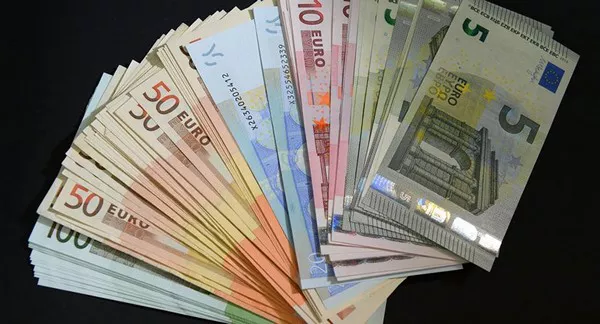In the ever-fluctuating landscape of international finance, currency exchange rates play a pivotal role in shaping global economic dynamics. Investors, businesses, and individuals closely monitor these rates as they can have a profound impact on trade, investment decisions, and travel expenses. Among the myriad of currency pairs, the Euro to Swiss Franc exchange rate holds particular significance due to the economic strength and stability of the Eurozone and Switzerland. In this comprehensive article, we will delve into the intricacies of the current EUR to CHF exchange rate, exploring the factors that influence it and the implications for various stakeholders.
The Current Exchange Rate: 1 Euro in Swiss Francs
As of the latest data, the exchange rate stands at 0.96 Swiss Francs for 1 Euro. This figure serves as a fundamental benchmark for businesses engaged in cross-border transactions, tourists planning trips to Switzerland, and investors seeking opportunities in the currency markets. Understanding the dynamics behind this rate requires a closer look at the economic fundamentals, geopolitical influences, and monetary policies of both the Eurozone and Switzerland.
Economic Indicators and Influences
The exchange rate between the Euro and Swiss Franc is subject to a multitude of economic indicators and influences that collectively determine the relative strength of these currencies. Key indicators include:
1. Interest Rates:
Central banks, such as the European Central Bank (ECB) and the Swiss National Bank (SNB), play a crucial role in setting interest rates.
Higher interest rates in the Eurozone may attract foreign capital, potentially strengthening the Euro against the Swiss Franc.
2. Inflation Rates:
Disparities in inflation rates between the Eurozone and Switzerland can impact the exchange rate.
Lower inflation in Switzerland may lead to an appreciation of the Swiss Franc against the Euro.
3. Economic Growth:
The overall economic performance of the Eurozone and Switzerland is a key determinant.
Robust economic growth in one region may result in increased demand for its currency, affecting the exchange rate.
4. Trade Balances:
Trade balances between the Eurozone and Switzerland can influence the exchange rate.
A trade surplus in Switzerland may lead to an increased demand for Swiss Francs, potentially impacting the exchange rate.
Geopolitical Influences and Market Sentiment
Beyond economic indicators, geopolitical events and market sentiment can also exert significant influence on the EUR to CHF exchange rate. Factors such as political stability, trade tensions, and global economic uncertainties can lead to fluctuations. For instance:
1. Brexit and European Union Dynamics:
Developments related to Brexit and the European Union can impact the Euro’s stability.
Political events that affect the Eurozone’s cohesion may lead to changes in the exchange rate.
2. Swiss Franc as a Safe-Haven Currency:
The Swiss Franc is often considered a safe-haven currency.
During times of global uncertainty, investors may flock to the Swiss Franc, potentially appreciating it against the Euro.
3. Global Economic Conditions:
Economic conditions worldwide, including major economies such as the United States and China, can influence the EUR to CHF exchange rate.
A global economic downturn may lead to a stronger Swiss Franc as investors seek safety.
Monetary Policies and Central Bank Actions
The policies implemented by the ECB and SNB are critical in shaping the exchange rate between the Euro and Swiss Franc. Central banks use tools like interest rates and quantitative easing to achieve their economic objectives. Recent developments include:
See Also:Current EUR Exchange Rate: What Is 50,000 Euros in US Dollars?
1. ECB Monetary Policy:
The ECB’s decisions on interest rates and asset purchases can impact the Euro’s value.
A more accommodative monetary policy may weaken the Euro, affecting its exchange rate with the Swiss Franc.
2. SNB Currency Interventions:
The SNB has a history of currency interventions to prevent the Swiss Franc from becoming excessively strong.
Interventions by the SNB can influence the exchange rate by adjusting the supply and demand for Swiss Francs.
Implications for Businesses and Investors
The exchange rate between the Euro and Swiss Franc holds significant implications for businesses engaged in international trade and investors with exposure to these currencies. Understanding these implications is crucial for making informed decisions:
1. Exporters and Importers:
Businesses involved in cross-border trade may face challenges or opportunities based on the exchange rate.
A stronger Euro may benefit European exporters, while importers may face increased costs.
2. Investors in Currency Markets:
Currency traders closely monitor the EUR to CHF exchange rate for potential trading opportunities.
Changes in economic indicators, geopolitical events, or central bank actions can trigger currency market movements.
3. Tourism and Travel Industry:
Tourists planning trips to Switzerland need to consider the exchange rate for budgeting purposes.
A favorable exchange rate can make travel more affordable, while an unfavorable rate may increase expenses.
Forecasting and Future Considerations
While the current exchange rate provides valuable insights, predicting future movements involves a degree of uncertainty. Analysts employ various methods, including technical analysis, fundamental analysis, and economic modeling, to forecast currency movements. Additionally, staying informed about ongoing developments and policy changes is crucial for anticipating shifts in the EUR to CHF exchange rate.
Conclusion: Navigating the Currency Landscape
In conclusion, the exchange rate between the Euro and Swiss Franc is a complex interplay of economic indicators, geopolitical influences, and central bank actions. The specific exchange rate of 0.96 Swiss Francs for 1 Euro reflects the current state of these dynamics. Businesses, investors, and individuals alike must remain vigilant and informed to navigate the ever-changing landscape of currency exchange rates. By understanding the factors at play and staying abreast of economic developments, stakeholders can make informed decisions in the face of uncertainty, ensuring a more resilient approach to the challenges and opportunities presented by the dynamic world of international finance.
Related Topics:
Current EUR Exchange Rate: What Is 30 Euros in US Dollars?
Current EUR Exchange Rate: What Is 100 Euros in US Dollars?
Current EUR Exchange Rate: What Is 5 Euros in US Dollars?




























